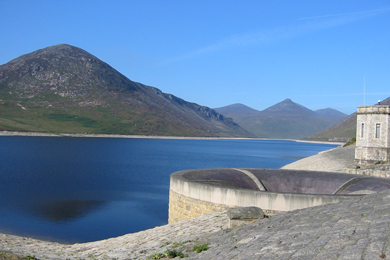The safety and quality of drinking water in Northern Ireland remains high, a new report published today confirmed.
The Drinking Water Inspectorate (DWI), which is responsible for regulating drinking water quality, today published its Annual Report for 2017.
However, Northern Ireland Environment Agency (NIEA) Chief Executive David Small warned that despite the positive results, there is no room for complacency.

Every year Northern Ireland Water carries out thousands of tests to check that our tap water complies with all the stringent water quality standards set by European and national legislation. The results are based on samples taken from water treatment works, service reservoirs and consumers’ taps. And the latest DWI report reveals that in 2017, overall compliance was reported as 99.88% in Northern Ireland.
Speaking following the publication of the report, Mr Small said: “The Drinking Water Inspectorate’s latest report is reassuring for consumers and confirms that the standard of our drinking water, which must meet strict regulatory standards, remains consistently high.
“It is the Drinking Water Inspectorate’s role to provide independent assurance to consumers that NI Water continues to meet its regulatory responsibilities. Its aim is to safeguard the delivery of safe, clean drinking water for consumers, through the independent and effective regulation of drinking water quality.”
However, he added: “The report makes it clear, there is no room for complacency.
“The report said that Northern Ireland still faces significant challenges. Good operational practice and risk management should be applied at every stage through catchment, treatment and distribution to ensure that NI Water continues to provide safe, clean, drinking water to the consumer.”
It also highlighted the need for targeted ongoing investment in infrastructure to ensure that overall compliance is maintained or improved to ensure high quality drinking water is secured. NI Water should continue to ensure risks are appropriately managed within the water supply system and this should be supported with its investment programme targeting areas of highest risk.
A small percentage of water, supplied from private water supplies in Northern Ireland, is also extensively monitored by NIEA with the assistance of local councils. The overall compliance figure of 98.74% is lower than that reported for the public water supply. The report provides a breakdown of what these supplies are used for and the issues experienced throughout 2017. The Department will continue to work with the owners in order to raise compliance at premises using a registered private water supply.
The report is available on the department’s website:
https://www.daera-ni.gov.uk/
























